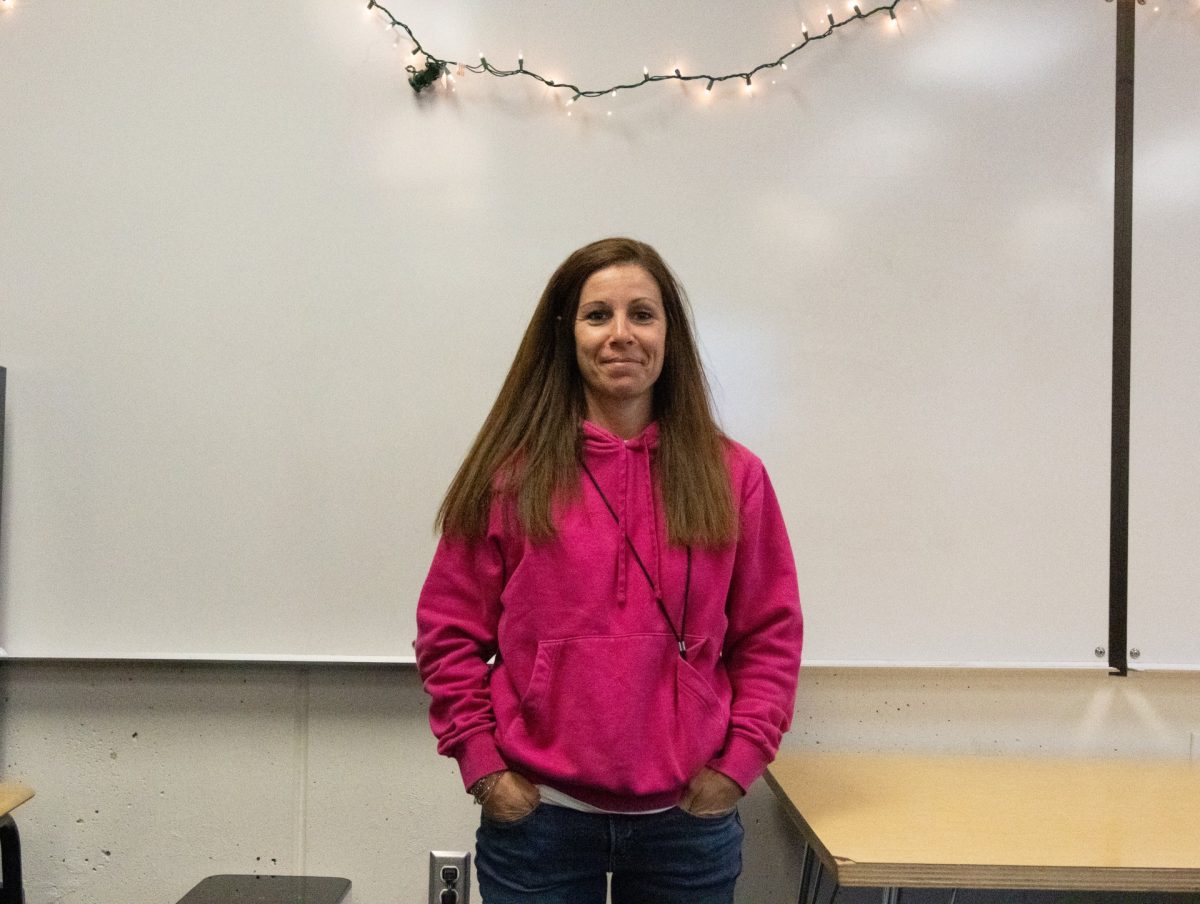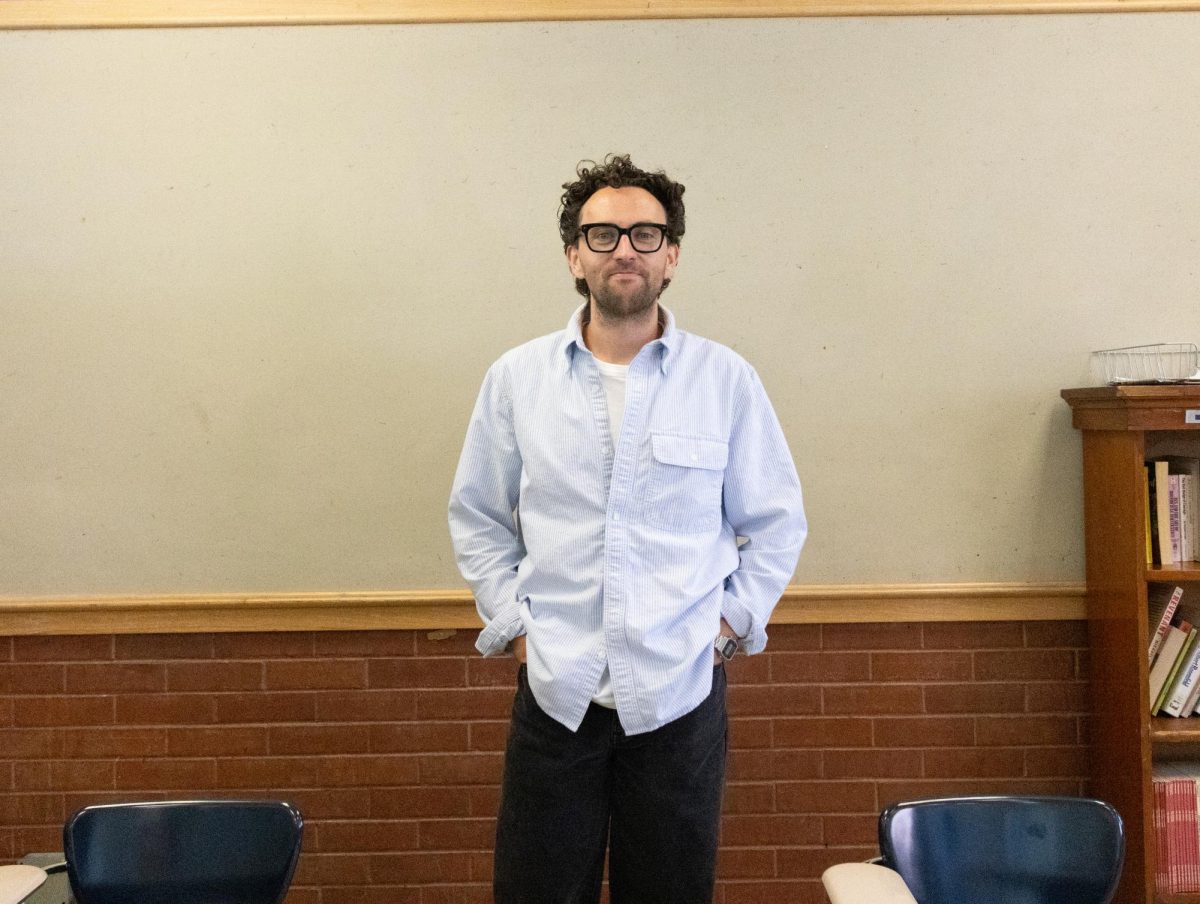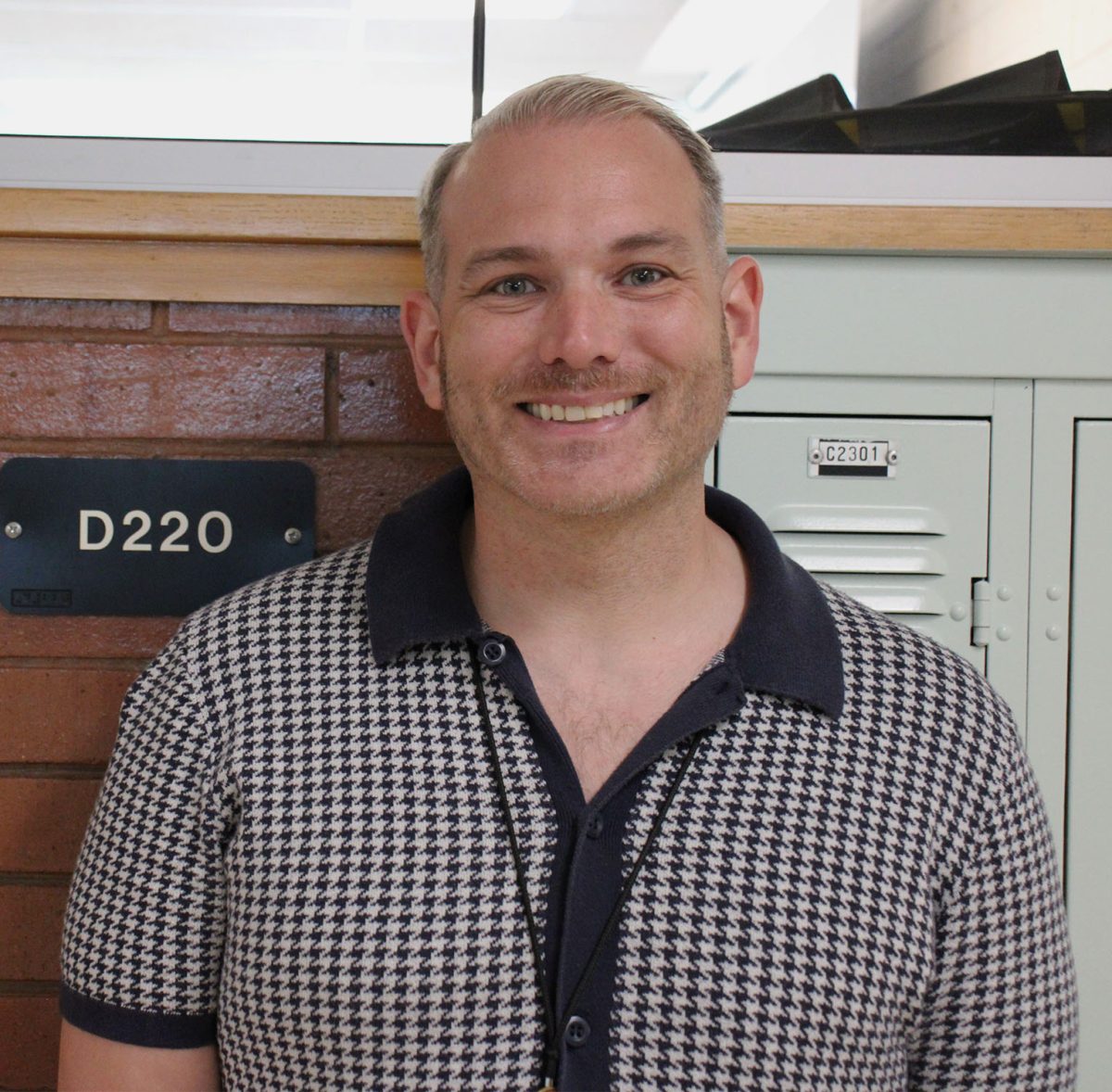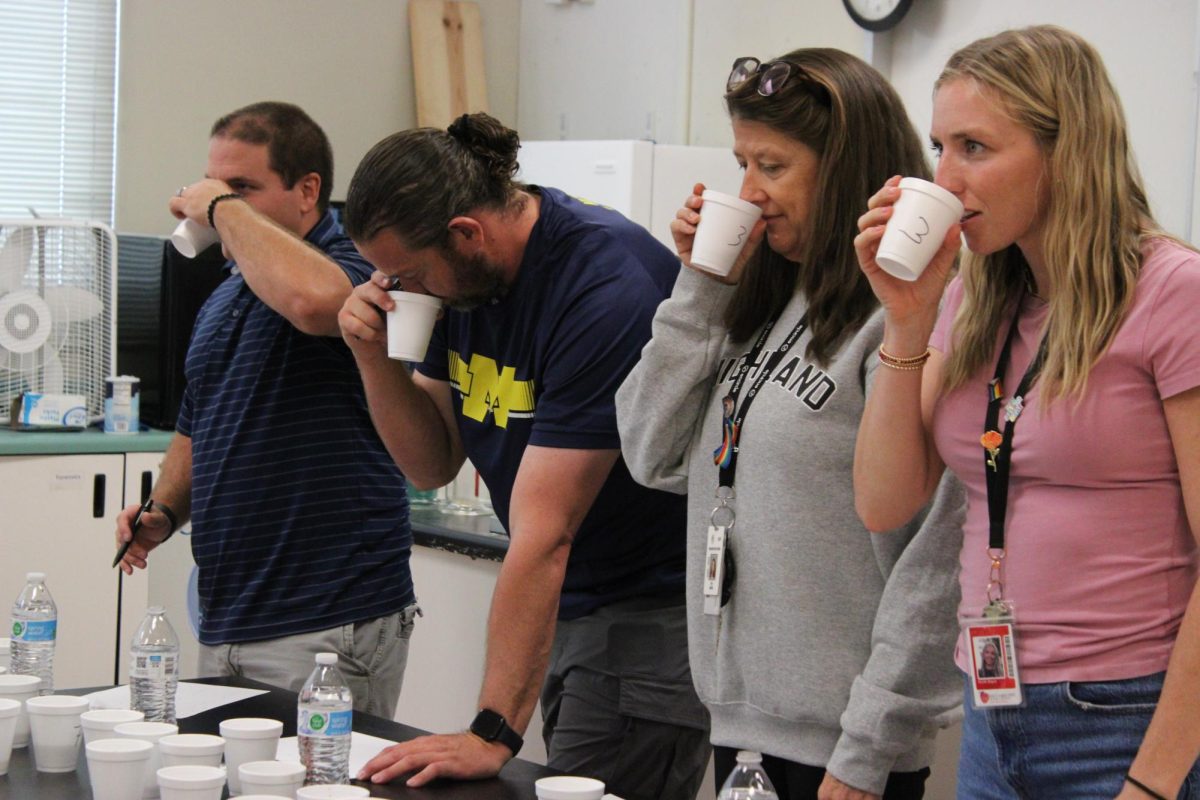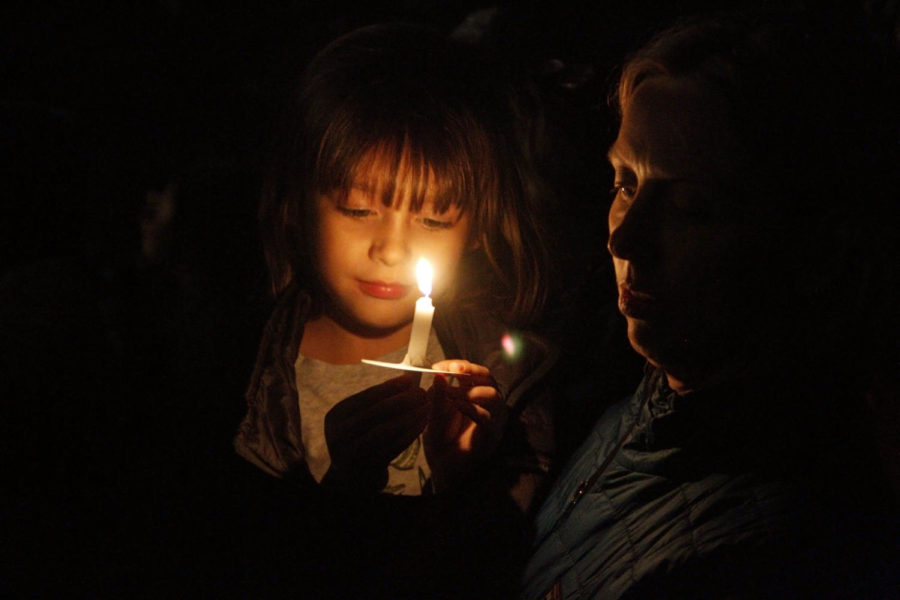Unity Emerges In Face Of Tragedy
Many people gathered at the Utah synagogue Congregation Kol Ami candlelight vigil.
December 19, 2018
What does unity look like? Does it look like hands clasped tightly, or bodies hugged close? Does it look like the sound of words spoken out against hatred, shouted with an urgency that predates and prevails above loudness?
On Tuesday, October 30th, unity looked like all of these things, but it looked also like what it was: the coming together of people from all walks of life, faith leaders across Utah, Jews and non-Jews alike. It looked like a setting aside of differences; seven hundred candles blazing light into a cold, uncertain darkness.
It was a candlelight vigil at Utah synagogue Congregation Kol Ami, and it embodied the ability to come together after a visceral, unspeakable tragedy.
On the 27th of October, just three days earlier, a shooter claimed the lives of eleven people at the Tree of Life synagogue in Squirrel Hill, Pittsburgh, in the most violent attack on Jews in American history. The shooter spoke in his words as well as his actions, repeatedly calling out, among others, Jewish refugee aid organization HIAS(Hebrew Immigrant Aid Society).
But while the shooter’s words and actions were reprehensible, leaving a dark, unerasable stain, the nation was banding together to show that this? This isn’t who we are.
Enter Salt Lake City, Utah. A state with a Jewish population less than 5 percent just 10 years ago, Utah operates under predominantly Christian views, and may be one of the best examples of how religion doesn’t interfere with humanity.
Shay Silk, Highland senior and member of Salt Lake City’s Congregation Kol Ami, had strong personal views on the shooting and its aftermath.
“I definitely saw an outpouring of support where it was appropriate, I just think that for the administrators of Highland to have said ‘Okay, let’s talk about what happened’, it’s not really pertinent. ” Says Silk.
Her perspective may reflect the demographics of Utah (and of Highland in particular) but the truth is, Salt Lake City has seen an outpouring of support for the Jewish community. From government officials, faith leaders, and the police departments to regular people of every background, it’s clear that these demographics don’t overpower humanity.
“Overall, the support has been overwhelming,” Congregation Kol Ami Rabbi Samuel Spector says, regarding Salt Lake’s government, police, and populace. Rabbi Spector, like so many others at Tuesday’s vigil, is new to Salt Lake. He moved just last year. Another recent mover, and non-Jewish Utahn Marilyn Choate, moved to Salt Lake last year, from Illinois.
“We’re all sad. And I think, in sadness, when you share with other people, you feel better. It makes- it doesn’t make the crime any less, but for some reason, banding together is just a way of solidarity and healing. ” She sums up. It’s a sentiment- perhaps the sentiment that’s driven everyone together over the Pittsburgh shooting.
Because ultimately, what Tuesday’s vigil showed was that we as a people should and can overcome hate crimes.
Among those showing their strength are Silk, who argues adamantly that even after the shooting, and the intensified target that is unfortunately placed on members of the Jewish faith… She isn’t afraid to be Jewish.
“I’ve never really personally been afraid to be Jewish, but I know that it is still a risk. ” Silk said, “And we have had vandalism at our synagogue, we have had a shot fired through our synagogue window, our new rabbi that was just installed, he has been impersonated on social media, and there have been emailed threats to our synagogue several times. And it does definitely feel like, you know, something that we still have to be cautious of. But to say like, ‘oh well now I’m afraid to be Jewish’ would be the same to say, like ‘I’m afraid to go to a public school,’ because these things happen, and you just don’t know when it will happen to you.”
Her argument applies not just to Jews but, in a sense, to everyone targeted by recent violent events in America. School shootings might not happen as much as the media makes it seem, but they happen a lot more now than they ever did, and it seems that every minority group is being targeted to some extent.
At Highland, we deal with this more than might first be thought. As a school with a large influx of refugees, we like to paint those stories in the most positive light that we can.
This, however, would be ignoring the fact that, sadly, just like anti-semitism, resentment and bigotry towards refugees has been on the rise in recent years. It may be easy to give in to the fear of being a target- and it may not even be wrong- but it’s more important to recognize the strength and the power that one possesses, and to be proud of one’s culture and who one is, no matter what.
The best way to show that Pittsburgh hasn’t broken the spirit of our country is to, as a country, move forward.
The issues that are on the table right now — whether it be anti-semitism or racism against refugees, or repeated, violent shootings at churches, synagogues, and schools — aren’t going to magically disappear.
This generation, our generation, we have to be the ones responsible for these changes. And we have to learn our lessons from events like the Pittsburgh shooting. What is that lesson? Both Rabbi Spector and Patricia Arent, congresswoman from District 36, weighed in.
“We can’t live in a world of hate. We all have to work together, to love each other, to be civil, and to respect each other. And to celebrate our differences,” Arent says.
Rabbi Sam Spector agreed.
“I think something we can learn from this is that the reaction we should have when there’s somebody in the world who doesn’t see holiness in other people, we need to increase the amount of light we spread in the world,” Spector said.
Looking around on that Tuesday night in October at the hundreds of flames piercing the darkness, I thought, We’re doing it already.





